The Bedtime Rituals of the Best-Rested
We went to the people who really need their rest—a fitness guru, a pro athlete, and more—to get the best advice.
By Corrie Pikul
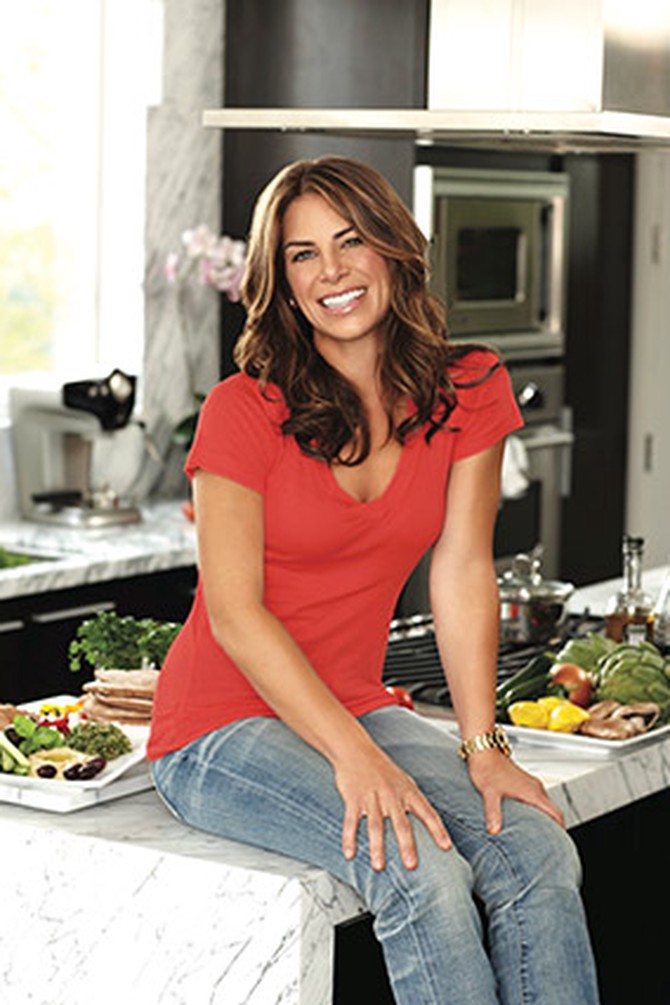
Photo: Andrew Southam
The Bedtime Story You Can Read with Your Eyes Closed
Who: Jillian Michaels, health and wellness expert and the author of Slim for Life
Her routine: Michaels is as hard-core about sleep as she is about exercise, and she prioritizes her rest. She aims for eight hours every night, although her two very young children don't always cooperate. "When I don't get enough sleep, I'm hungrier the next day," she tells us. The wind-down technique she always recommends to clients involves listening to audiobooks—"They are like bedtime stories for adults," she says. One of her all-time favorites is Parallel Worlds, by theoretical physicist Michio Kaku.
Make it work for you: Keep the volume just barely audible, so it's easier to drift off when you're ready.
Her routine: Michaels is as hard-core about sleep as she is about exercise, and she prioritizes her rest. She aims for eight hours every night, although her two very young children don't always cooperate. "When I don't get enough sleep, I'm hungrier the next day," she tells us. The wind-down technique she always recommends to clients involves listening to audiobooks—"They are like bedtime stories for adults," she says. One of her all-time favorites is Parallel Worlds, by theoretical physicist Michio Kaku.
Make it work for you: Keep the volume just barely audible, so it's easier to drift off when you're ready.
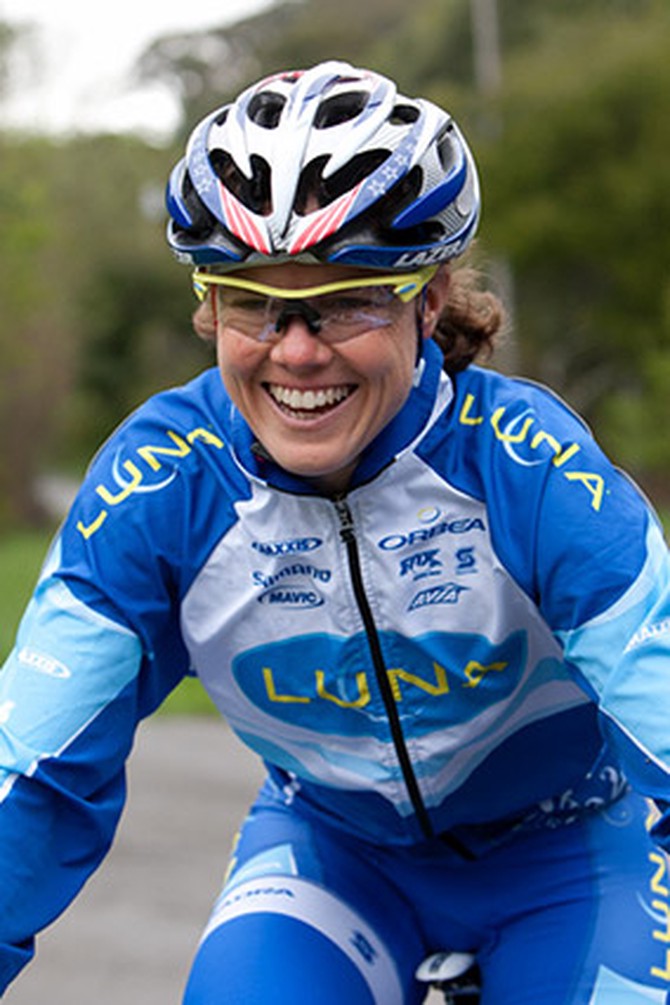
Photo: Rich Adams
The Black Out
Who: Georgia Gould, mountain biker, 2012 Olympic bronze medalist, LUNA Chix Pro Team member
Her routine: Gould says she needs a minimum of eight hours of shut-eye for peak performance, but when she's traveling to compete, she often has trouble falling asleep in different time zones. She's found that wearing an eye mask and earplugs helps block unfamiliar sounds and distracting light. "I call it my total-isolation chamber," she says. These aids have proven so effective that she even uses them at home on nights before a big race.
Make it work for you: Any kind of light—from your clock, laptop, TV, street lamp, neighbor's house—can interfere with the brain's production of melatonin and keep you awake. With Gould's mask and plugs, you create a dark haven—just consider getting a vibrating alarm if you need to be up at a specific time.
Her routine: Gould says she needs a minimum of eight hours of shut-eye for peak performance, but when she's traveling to compete, she often has trouble falling asleep in different time zones. She's found that wearing an eye mask and earplugs helps block unfamiliar sounds and distracting light. "I call it my total-isolation chamber," she says. These aids have proven so effective that she even uses them at home on nights before a big race.
Make it work for you: Any kind of light—from your clock, laptop, TV, street lamp, neighbor's house—can interfere with the brain's production of melatonin and keep you awake. With Gould's mask and plugs, you create a dark haven—just consider getting a vibrating alarm if you need to be up at a specific time.
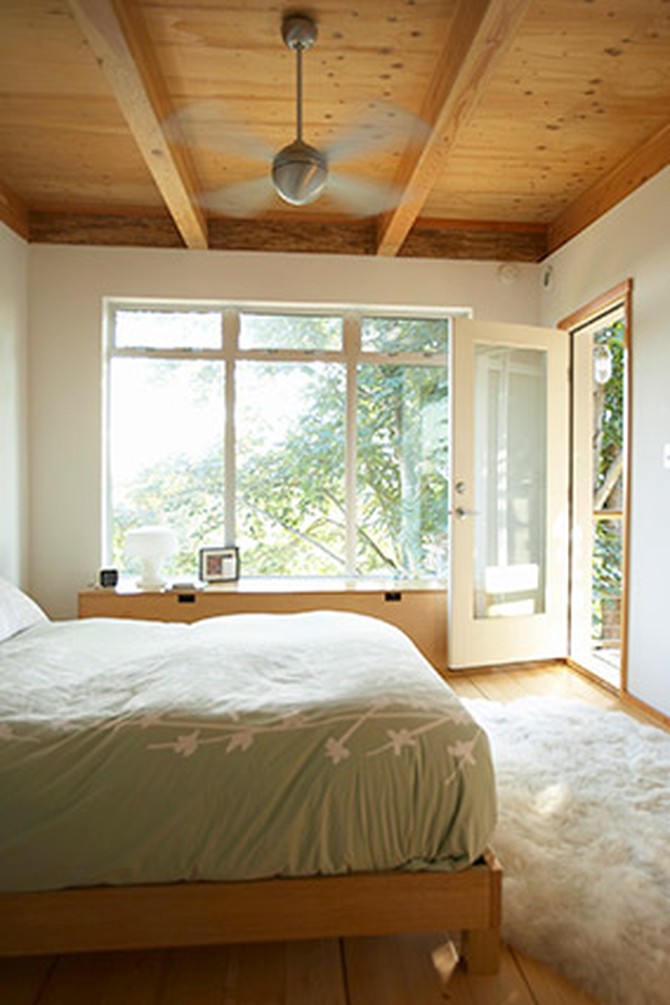
Photo: Thinkstock
The Block Out
Who: David N. Neubauer, MD, associate professor at Johns Hopkins University School of Medicine
His routine: As a psychiatrist who's been studying sleep for almost three decades, Neubauer has picked up a few tricks to ensure he gets at least seven to eight hours a night (sometimes closer to nine). Before turning in, he switches on a bedside fan—regardless of the temperature in the room. "There's plenty of anecdotal evidence that white noise can be soothing, because it blocks out sudden variations in sound—like a car alarm—that can wake us," he says. Neubauer even brings a small portable fan with him when traveling.
Make it work for you: A fan does double duty by creating ambient sound and increasing air circulation, but you can also be lulled to sleep by white noise from a specialized machine, a CD or a phone app like Relax Melodies.
His routine: As a psychiatrist who's been studying sleep for almost three decades, Neubauer has picked up a few tricks to ensure he gets at least seven to eight hours a night (sometimes closer to nine). Before turning in, he switches on a bedside fan—regardless of the temperature in the room. "There's plenty of anecdotal evidence that white noise can be soothing, because it blocks out sudden variations in sound—like a car alarm—that can wake us," he says. Neubauer even brings a small portable fan with him when traveling.
Make it work for you: A fan does double duty by creating ambient sound and increasing air circulation, but you can also be lulled to sleep by white noise from a specialized machine, a CD or a phone app like Relax Melodies.
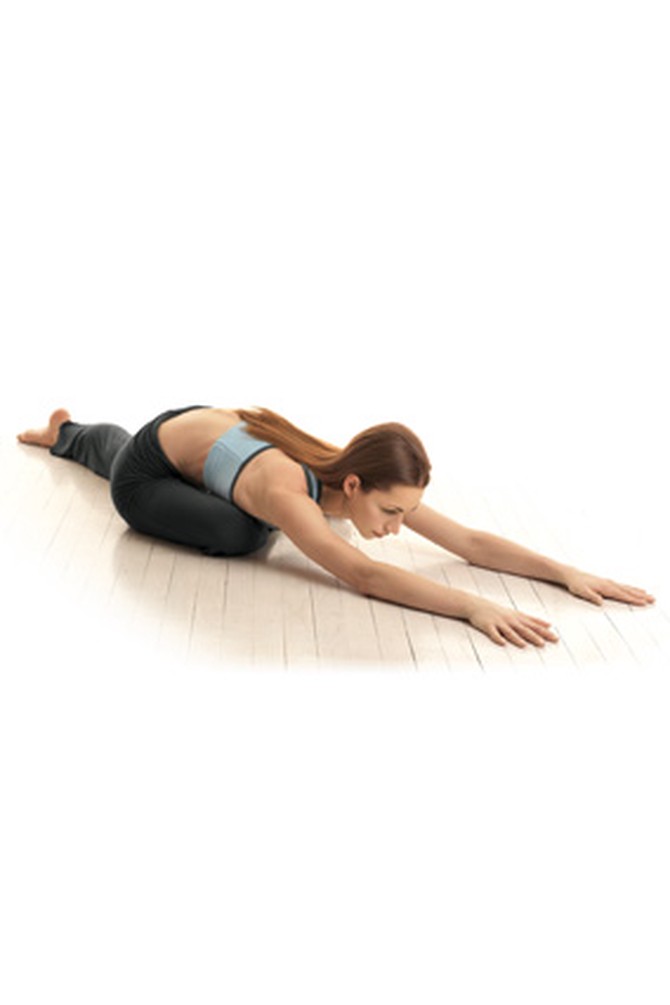
Photo: Beth Bischoff
The Bend, Lean, Yawn
Who: Tara Stiles, yoga instructor (Deepak Chopra is one of her students)
Her routine: Stiles says that if she gets any less than seven hours of sleep, she starts to feel ragged and sluggish. Even though she spends her day practicing and teaching yoga at Strala, the New York studio she founded, she often ends her day with a few poses at home. She likes pigeon pose and ankle to knee because "they're a great way to release tension in my hips and back and calm my mind before bed."
Make it work for you: Just 5 or 10 minutes of gentle stretching is all you need to feel looser and more relaxed.
Her routine: Stiles says that if she gets any less than seven hours of sleep, she starts to feel ragged and sluggish. Even though she spends her day practicing and teaching yoga at Strala, the New York studio she founded, she often ends her day with a few poses at home. She likes pigeon pose and ankle to knee because "they're a great way to release tension in my hips and back and calm my mind before bed."
Make it work for you: Just 5 or 10 minutes of gentle stretching is all you need to feel looser and more relaxed.
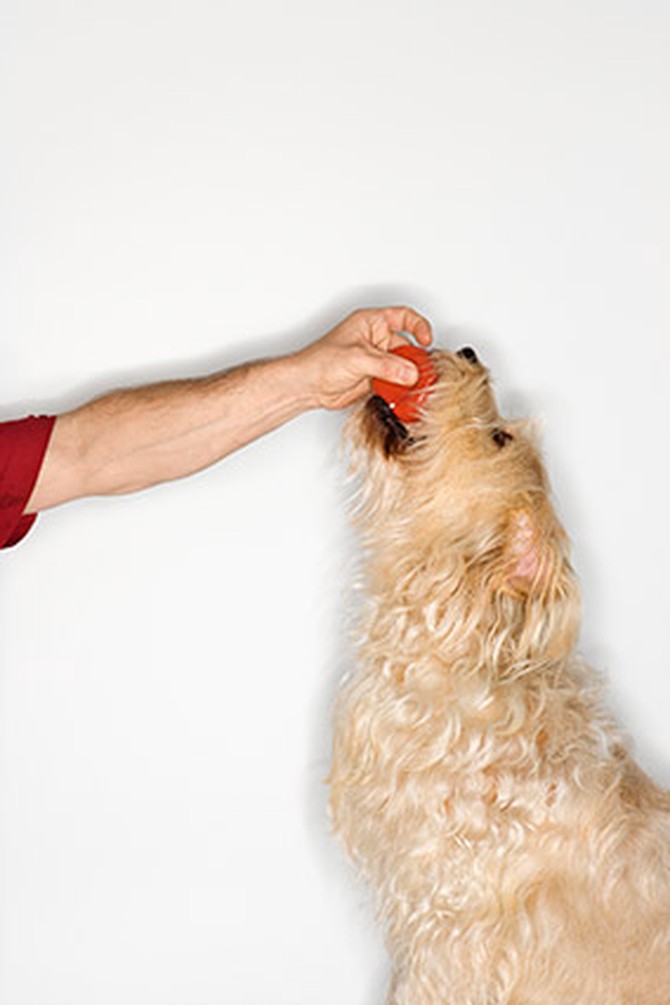
Photo: Thinkstock
The Meditative Game of Fetch
Who: Russell Rosenberg, PhD, board-certified sleep specialist and the chairman of the board of the National Sleep Foundation
His routine: As the head of a nonprofit dedicated to helping people sleep, Rosenberg is practically duty-bound to get the 7.5 hours he needs to feel rested. One of the best ways he's found to do this is to play with his two Border collies. "It's a great way to take my mind off the day," he says, and it allows him to spend quality time with the dogs before they curl up for the night in their kennel—far away from the bedroom.
Make it work for you: Over half of people who sleep with their pets admit that their furry friends disrupt their sleep, found a survey by the Mayo Clinic Sleep Disorders Center. By designating the room a pet-free zone, you'll all sleep more soundly.
Next: The fastest way to make up for lack of sleep
His routine: As the head of a nonprofit dedicated to helping people sleep, Rosenberg is practically duty-bound to get the 7.5 hours he needs to feel rested. One of the best ways he's found to do this is to play with his two Border collies. "It's a great way to take my mind off the day," he says, and it allows him to spend quality time with the dogs before they curl up for the night in their kennel—far away from the bedroom.
Make it work for you: Over half of people who sleep with their pets admit that their furry friends disrupt their sleep, found a survey by the Mayo Clinic Sleep Disorders Center. By designating the room a pet-free zone, you'll all sleep more soundly.
Next: The fastest way to make up for lack of sleep
Published 04/09/2013

